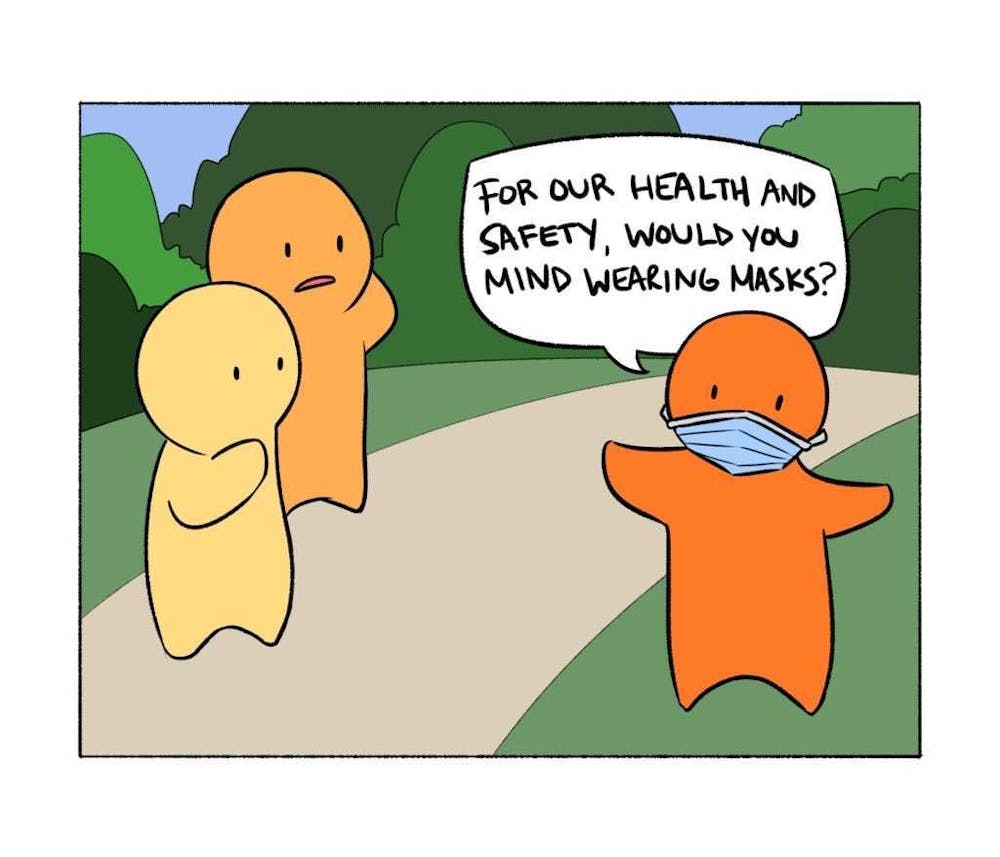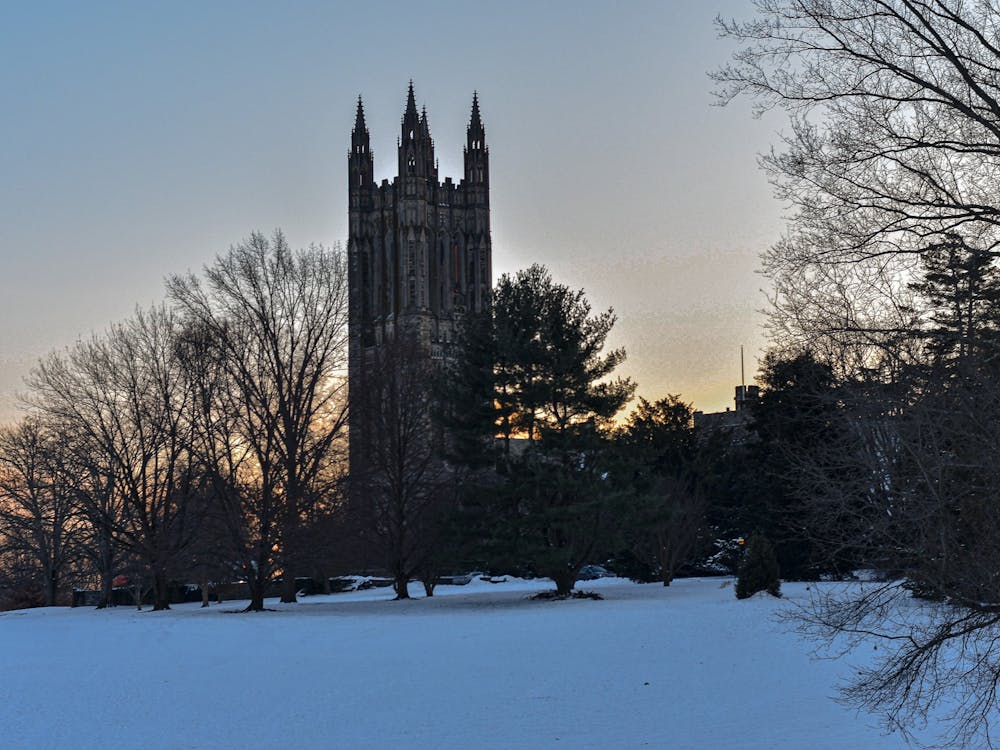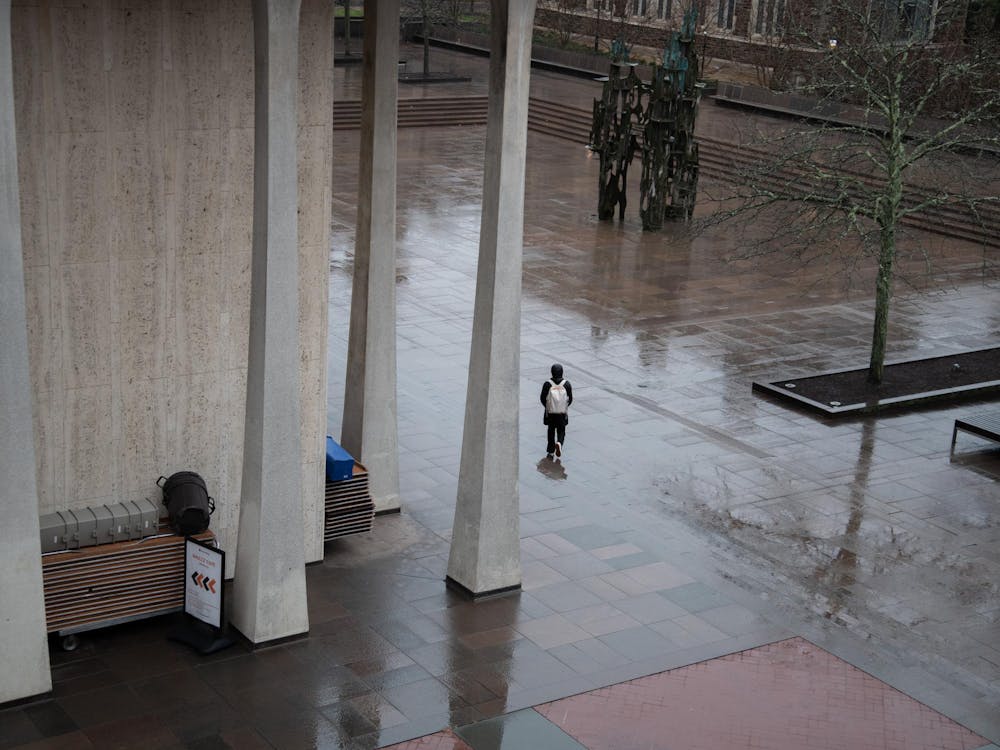The unorthodox move-in period has come to a close, marking the start of a semester that will be like no other. It is important to recognize that with the exciting prospects, a return to campus brings the responsibility for us all to ensure this semester is as safe and successful as possible.
We are grateful for the many essential campus workers who have labored for months to prepare campus for the return of students this spring and continue to work around-the-clock to protect our health. We owe it to them, to each other, and to the local community to do our part in mitigating the spread of COVID-19.
This Board unanimously pledges to comply with public health guidelines and urges students on and off campus to do the same and educate their peers. We applaud the University’s emphasis on open interpersonal communication in this area and their desire to provide students with the necessary tools to address non-compliance through peaceful resolution techniques.
Thus, beyond pledging to comply fully with University, local, state, and national guidelines for mitigating the spread of COVID-19, this Board will also take the University’s active bystander training to heart and think about how we can engage with and promote safe behavior among our peers through empathetic dialogue. As incoming Undergraduate Student Government president Christian Potter ’22 discussed on Jan. 22 in a video message, “it’s up to us” — to both make changes to our daily routines and to hold our friends accountable to keep the community safe.
The Office of Emergency Health and Safety’s (EHS) COVID-19 Training for Students emphasizes that every community member is empowered to speak to others about safe practices and encourage compliance in constructive ways. One example in the training suggests that if someone enters your space maskless, students can call them in by asking, “For my health and safety, would you mind wearing your mask?”
This Board encourages students to first consider methods of “calling in” such as this, rather than immediately reaching for more aggressive confrontation or anonymous reporting. We believe looking first to interpersonal dialogue is a more effective way for our community to encourage introspection and correct genuine missteps.
Such an approach is also warranted when considering the potential for disproportionate disciplinary action on students of color, particularly Black students. Some research has already shown that members of Black and brown communities are disproportionately punished for curfew violations and other COVID-19-related transgressions. We know too that severe disciplinary action could have disproportionate impacts on different students depending on time zones, at-home situations, and socioeconomic status. Recognizing these worries and disparities, we see emphasizing communication over castigation when possible as a more equitable solution.
However, we do acknowledge this approach does not apply to every situation. We take lightly neither the gravity of this pandemic nor the immense toll it has already taken, and we understand that blatant disregard for community well-being should be disciplined. We also recognize that it may not always be safe for individuals to call in peers engaged in reckless behavior, and in these situations, there is not always another student to delegate such an interaction. In these instances, as when a student is immunocompromised or when there is a large gathering that would endanger the student, the safer and smarter thing to do is to report, and we are glad mechanisms to do so exist.
These public health considerations remain relevant beyond FitzRandolph Gate. Like several members of this Board, hundreds of Princeton students chose to continue their education virtually this semester. For them, and for all of our readers, peaceful resolution techniques are just as vital. Wherever you may be located, we encourage you to model safe behaviors and educate members of your community by letting individuals who engage in unsafe behavior know why abiding by public health guidelines is important to you when you feel safe to do so.
In the spirit of delegation — another active bystander strategy recommended by EHS, which encourages community members to think about delegating intervention to whoever might best influence an individual to correct their behavior — we also call upon student publications and organizations across ideological lines to commit to abiding by and promoting public health guidelines.
Despite the clearly apolitical nature of public health guidance, it is no secret that decisions around mask use and views of the pandemic’s severity are often closely tied with partisanship. Rep. Bonnie Watson Coleman (D-N.J.), who represents Princeton’s congressional district, contracted the virus shortly after the Jan. 6 attack on the Capitol, during which multiple Republican congresspeople explicitly refused to wear masks while sheltering in a secure location. In part because of this disconnect, we call specifically on political student organization leaders — of the Princeton College Democrats, Princeton College Republicans, and Whig-Clio alike — to all publicly and unabashedly pledge to protect public health.
And in a heavily-siloed media environment where the ‘Prince’ Editorial Board may not reach everyone, we want to ensure that we delegate to our peers to help reach a broader base of community members. To leaders at the Nassau Weekly, Princeton Progressive, Princeton Tory, University Press Club, and all other campus publications, join us in embracing and encouraging safe behavior to help amplify a message of community care to your audiences.

Greek life and related party culture have also negatively impacted a number of schools’ attempts to reopen safely. This Board calls specifically on the leadership of off-campus sororities and fraternities — as well as eating clubs, especially with Street Week upon us — to join us in pledging that your organizations will not tolerate reckless behavior from your members.
To all members of the Princeton community, we call you in. For everyone’s health and safety, would you mind wearing your mask and holding those around you accountable?
145th Editorial Board
Chair
Mollika Jai Singh ’24
Members
Shannon Chaffers ’22
Won-Jae Chang ’24
Kristal Grant ’24
Harsimran Makkad ’22
Anna McGee ’22
Collin Riggins ’24
Zachary Shevin ’22









